AshleyDyson/iStock/GettyImages
The quality of supermarket produce is generally very good, but nothing compares to the flavor and texture of produce harvested locally at the very peak of ripeness. For most foods, that pinnacle of quality only lasts a few weeks at best, so frugal homemakers who want to preserve their garden's bounty often turn to home canning. Properly canned foods retain their quality for several months and remain food safe even longer.
How Canning Works
The microorganisms that cause food spoilage mostly require oxygen to survive and can't withstand high temperatures. If you heat foods to the boiling temperature within their jars, it kills almost any bacteria present. The heated air inside the jar expands and most of it is forced out from under the lid, which then seals itself tightly when the jar cools. This vacuum seal prevents any outside bacteria or mold spores from entering the jar and the heat from the canning process kills most microorganisms inside the jar.
Acidity, Temperature and Botulism
Foods with a high level of acidity, or those such as jams and jellies that are preserved with sugar, are relatively immune to dangerous microorganisms and can be canned in a water-bath boiler. Low-acid foods, such as meat, fish and many pureed vegetables, can't be safely canned at that temperature because of a bacteria called Clostridium botulinum. Clostridium botulinum can survive boiling temperatures and thrives in the oxygen-free environment of a canning jar. It produces a potentially lethal toxin, which causes an illness called botulism. The toxin can be destroyed by boiling, but the bacteria is only killed by the higher temperatures of a pressure canner.
Extended Storage
Foods canned according to up-to-date instructions are safe for an extended period as long as they've made a firm seal. Home-canned foods retain their quality for at least a year under good storage conditions and can remain food safe for years after that. High-acid foods such as pickles or high-sugar foods such as fruit preserves last almost indefinitely. The jars should be stored in a cool, dark space, preferably in an area such as a cellar where the temperature will remain stable. Jars that have visibly lost their seals or that show bubbling and fermentation should be discarded. Unpleasant smells are also a danger sign, though food can taste and smell fine and still harbor the botulism toxin. For absolute safety, boil low-acid foods for at least 10 minutes to destroy any toxin.
Dry Goods
Although canning jars are primarily used for canning and preserves, they also make superb containers for the long-term storage of dry goods such as grains, dried beans and dried fruit. Seal the jars tightly and store them in a cool, dark place, such as a pantry. The storage life of dry goods varies widely, so note the expiration date from the original packaging and put it on a label on the lid of the jar. For example dried beans can last years while wheat germ, with its perishable oils, might become rancid after just a few months.
Related Articles

Can You Freeze Canned Goods?

What Are the Best Containers to Freeze ...
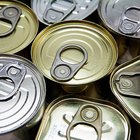
Dented Cans and Botulism
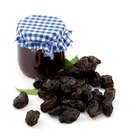
How to Can Jelly Using a Pressure Canner
What Happens if You Eat Expired Beets ...
Maximum Storage Temperature of Canned ...

The Danger of Storing Hard Cider in ...
How Long Can Canned Pickles Stay Good?
How Long Can You Keep Canned Salmon?

Problems With Black on Canning Jar Rim

How to Vacuum Seal Jars
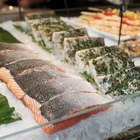
FDA Food Storage Temperature Guidelines

Does Caviar Go Bad?
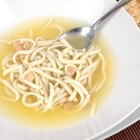
Does Canned Soup Go Bad?
How Long After the Expiration Date Can ...

Indications of Refrigerated Cooked Meat ...
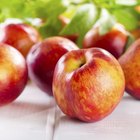
How to Preserve Nectarines
How to Preserve Salsa Made With Canned ...
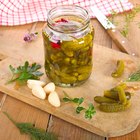
How to Dry Pack Long-Term Food in Mason ...

Should You Steam or Blanch Bean Sprouts ...
References
- On Food and Cooking: The Science and Lore of the Kitchen; Harold McGee
- National Center for Home Food Preservation: Frequently Asked Canning Questions
- Ball: Fresh Preserving and Canning Questions
Writer Bio
Fred Decker is a trained chef and prolific freelance writer. In previous careers, he sold insurance and mutual funds, and was a longtime retailer. He was educated at Memorial University of Newfoundland and the Northern Alberta Institute of Technology. His articles have appeared on numerous home and garden sites including GoneOutdoors, TheNest and eHow.